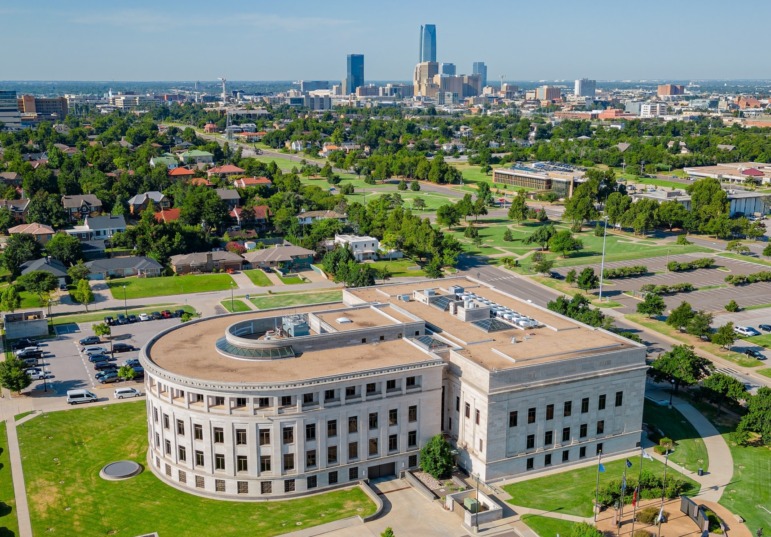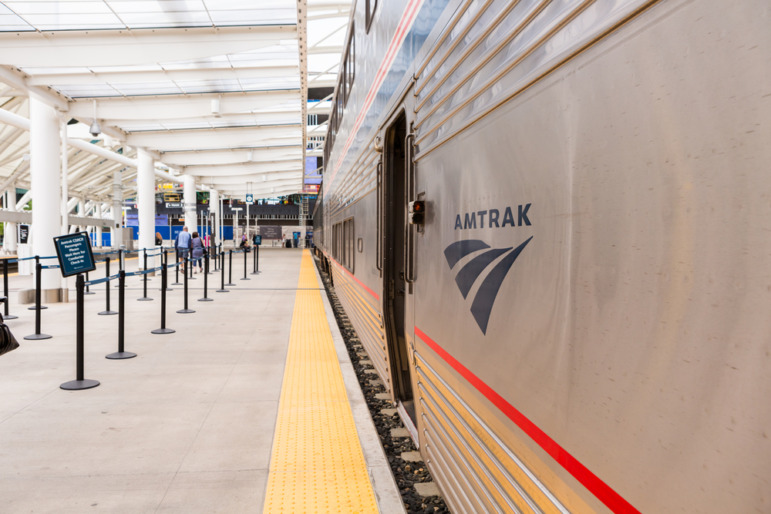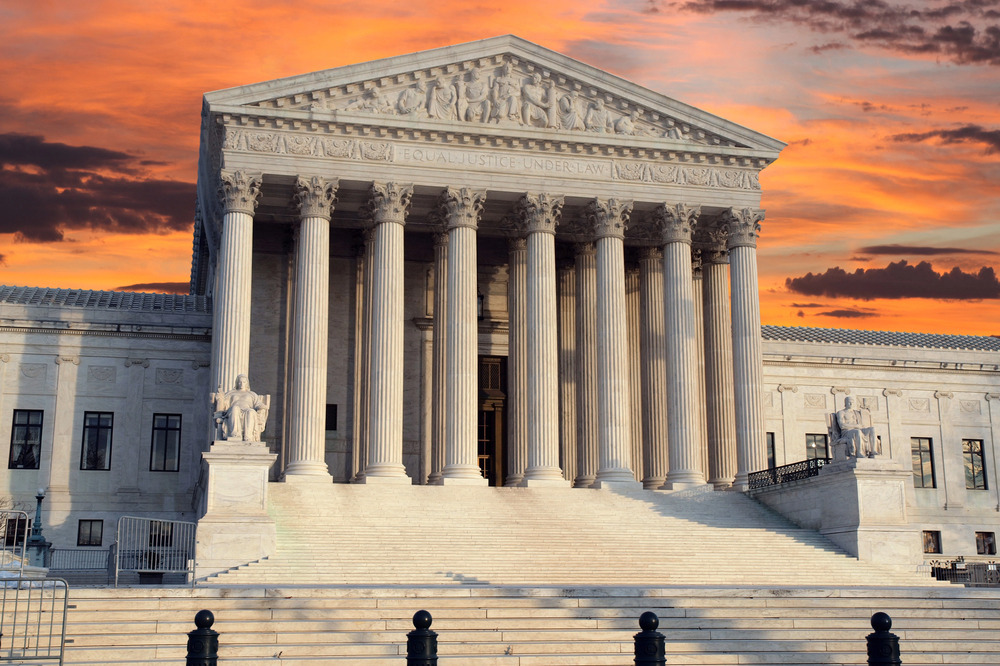In April 2025, the Supreme Court will hear arguments about whether the nation’s first religious charter school can open in Oklahoma. The St. Isidore of Seville Catholic Virtual School would be funded by taxpayer money but run by a local archdiocese and diocese.
The case is often discussed in terms of religion, and a decision in the school’s favor could allow government dollars to directly fund faith-based charter schools nationwide. In part, the justices must decide whether the First Amendment’s prohibition on government establishing religion applies to charter schools. But the answer to that question is part of an even bigger issue: Are charters really public in the first place?
As two professors who study education law, we believe the Supreme Court’s decision will impact issues of religion and state, but could also ripple beyond – determining what basic rights students and teachers do or don’t have at charter schools.
Dueling arguments
In June 2023, the Oklahoma Statewide Virtual Charter School Board approved St. Isidore’s application to open as an online K-12 school. The following year, however, the Oklahoma high court ruled that the proposal was unconstitutional. The justices concluded that charter schools are public under state law, and that the First Amendment’s establishment clause forbids public schools from being religious. The court also found that a religious charter school would violate Oklahoma’s constitution, which specifically forbids public money from benefiting religious organizations.

Kit Leong/Shutterstock
The Oklahoma Supreme Court in the Oklahoma State Capitol, Oklahoma City.
On appeal, the charter school is claiming that charter schools are private, and so the U.S. Constitution’s establishment clause does not apply.
Moreover, St. Isidore argues that if charter schools are private, the state’s prohibition on religious charters violates the First Amendment’s free exercise clause, which bars the government from limiting “the free exercise” of religion. Previous Supreme Court cases have found that states cannot prevent private religious entities from participating in generally available government programs solely because they are religious.
In other words, while St. Isidore’s critics argue that opening a religious charter school would violate the First Amendment, its supporters claim the exact opposite: that forbidding religious charter schools would violate the First Amendment.
Are charters public?
The question of whether an institution is public or private turns on a legal concept known as the “state action doctrine.” This principle provides that the government must follow the Constitution, while private entities do not have to. For example, unlike students in public schools, students in private schools do not have the constitutional right to due process for suspensions and expulsions – procedures to ensure fairness before taking disciplinary action.
Charter schools have some characteristics of both public and private institutions. Like traditional public schools, they are government-funded, free and open to all students. However, like private schools, they are free from many laws that apply to public schools, and they are independently run.
Because of charters’ hybrid nature, courts have had a hard time determining whether they should be considered public for legal purposes. Many charter schools are overseen by private corporations with privately appointed boards, and it is unclear whether these private entities are state actors. Two federal circuit courts have reached different conclusions.
[Related: Oklahoma Supreme Court strikes down Catholic charter school]
In Caviness v. Horizon Learning Center, a case from 2010, the 9th Circuit held that an Arizona charter school corporation was not a state actor for employment purposes. Therefore, the board did not have to provide a teacher due process before firing him. The court reasoned that the corporation was a private actor that contracted with the state to provide educational services.
In contrast, the 4th Circuit ruled in 2022 that a North Carolina charter school board was a state actor under the equal protection clause of the Fourteenth Amendment. In this case, Peltier v. Charter Day School, students challenged the dress code requirement that female students wear skirts because they were considered “fragile vessels.”
Charter schools have some characteristics of both public and private institutions.
The court first reasoned that the board was a state actor because North Carolina had delegated its constitutional duty to provide education. The court observed that the charter school’s dress code was an inappropriate sex-based classification, and that school officials engaged in harmful gender stereotyping, violating the equal protection clause.
If the Supreme Court sides with St. Isidore – as many analysts think is likely – then all private charter corporations might be considered nonstate actors for the purposes of religion.
But the stakes are even greater than that. State action involves more than just religion. Indeed, teachers and students in private schools do not have the constitutional rights related to free speech, search and seizure, due process and equal protection. In other words, if charter schools are not considered “state actors,” charter students and teachers may eventually shed constitutional rights “at the schoolhouse gate.”
Amtrak: An alternate route?
When courts have held that charter schools are not public in state law, some legislatures have made changes to categorize them as public. For example, California passed a law to clarify that charter school students have the same due process rights as traditional public school students after a court ruled otherwise.
Likewise, we believe states looking to clear up charter schools’ ambiguous state actor status under the Constitution can amend their laws. As we explain in a recent legal article, a 1995 Supreme Court case involving Amtrak illustrates how this can be done.

The court ruled in the Amtrack’s favor ruling it was a public entity, reasoning that Amtrak was a government actor because it was created by special law, served important governmental objectives, and its board members were appointed by the government.
Lebron v. National Railroad Passenger Corporation arose when Amtrak rejected a billboard ad for being political. The advertiser sued, arguing that the corporation had violated his First Amendment right to free speech. Since private organizations are not required to protect free speech rights, the case hinged on whether Amtrak qualified as a government agency.
The court ruled in the plaintiff’s favor, reasoning that Amtrak was a government actor because it was created by special law, served important governmental objectives, and its board members were appointed by the government.
Courts have applied this ruling in other instances. For example, the 10th Circuit Court ruled in 2016 that the National Center for Missing and Exploited Children was a governmental agency and therefore was required to abide by the Fourth Amendment’s protection from unreasonable search and seizure.
Currently, we believe charter schools fail the test set out in the Amtrak decision
Charter schools do serve the governmental purpose of providing educational choice for students. However, charter school corporations are not created by special law. They also fall short because most have independent boards instead of members who are appointed and removed by government officials.
However, we would argue that states can amend their laws to comply with Lebron’s standard, ensuring that charter schools are public or state actors for constitutional purposes.![]()
[Related Grant Opportunity: University student-led research support grants]
***
Preston Green III is the John and Maria Neag Professor of Urban at the University of Connecticut where he is also a professor of educational leadership and law. Dr. Green helped develop the UCAPP Law Program, which enables participants to obtain a law degree and school administrator certification at the same time. Dr. Green also developed the School Law Online Graduate Certificate, an online program that helps educators, administrators and policy makers understand the legal dimension of K-12 education.Dr. Green has written five books and numerous articles and book chapters pertaining to educational law. He primarily focuses on the legal and policy issues pertaining to educational access and school choice.
Susan S. Engeleiter is a professor of Education Law, Policy and Practice at the University of Wisconsin-Madison. She has published over 100 articles and book chapters on education legal issues. Engeleiter is the former past president of the Education Law Association. She is currently an endowed chair at the University of Wisconsin Madison School of Education and a faculty affiliate at the law school.
This article is republished from The Conversation under a Creative Commons license. Read the original article.
Disclosures:
Preston Green III is affiliated with the National Education Policy Center.
University of Connecticut and University of Wisconsin–Madison provide funding as members of The Conversation US.




























